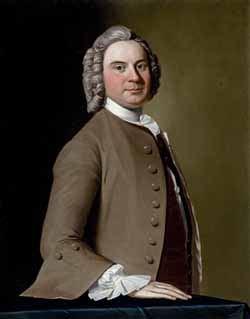The immediate question was how the town would treat its contract with Edward Smith, hired back in March to oversee the lamplighters and maintain supplies. On 31 August the selectmen decided:
Whereas it was agreed with Mr. Edward Smith to take the care of the Town Lamps for twelve months he to receive the sum of Forty Pounds Sterg. for that term of time, and whereas £13–6–8– lawful mony has been paid him for one quarter, & another quarter expires this day; but by reason of the distress occasioned by the Boston Port Bill, the Lamps have not been light the last Quarter—therefore,The town was thus still spending money on the street lights even though they weren’t lighting anything—and in a difficult economic time, too. But the selectmen could justify that as a payment for future service, and they kept Smith satisfied.
Voted, that mr. Smith have a draft for said last Quarter as tho’ the service had been performed he having engaged to perform said service in any future time when called upon for that purpose, it being his intention and agreement to perform the service at the rate he had engaged for a twelve month, when the Town shall think proper to have the Lamps again lighted; and to consider this 2d. Quarters pay as so much advanced on account of service, which remains still to be performed by him, when called upon for that purpose.
In the memo. Book he has signed his Name to such a Writing as the above.
The decision to stop lighting the lamps coincided with the return of British army regiments to the streets. The presence of those soldiers didn’t make Bostonians feel so secure they decided street lighting was unnecessary. Based on their memories of 1768, citizens expected that having hundreds more young men in town, especially entitled young officers, would bring more trouble, not less.
At a meeting on 3 November, the town endorsed a recommendation to “augment the Town Watch to the Number of Twelve Men in each Watch” instead of four—a huge increase in personnel and expense.
That same town meeting took this confusing series of votes:
Upon a Motion made, Voted, that the Selectmen be desired to give Orders for the Lighting of the Lamps, when they shall think it proper.——That appears to be the last recorded discussion of the street lamps before the war. Presumably they remained dark.
Voted, that a Comittee be now chosen to procure Subscriptions for the Purpose of Lighting of the Town Lamps.
On a Motion made, Voted, that the above Vote respecting Subscriptions for lighting the Lamps be reconsidered
On 24 November, the selectmen chose one of their number, Timothy Newell, to “receive from John Rowe Esq. all the Lamps and Tin Plates which he has in his hands, and to deposite the same in the upper loft of Faneuil Hall.” Rowe (shown above) had chaired the committee to acquire and install the street lights, and now he was done with the project. The extra equipment went into Boston’s attic, not to be brought out until the lamps had been lit again.

No comments:
Post a Comment